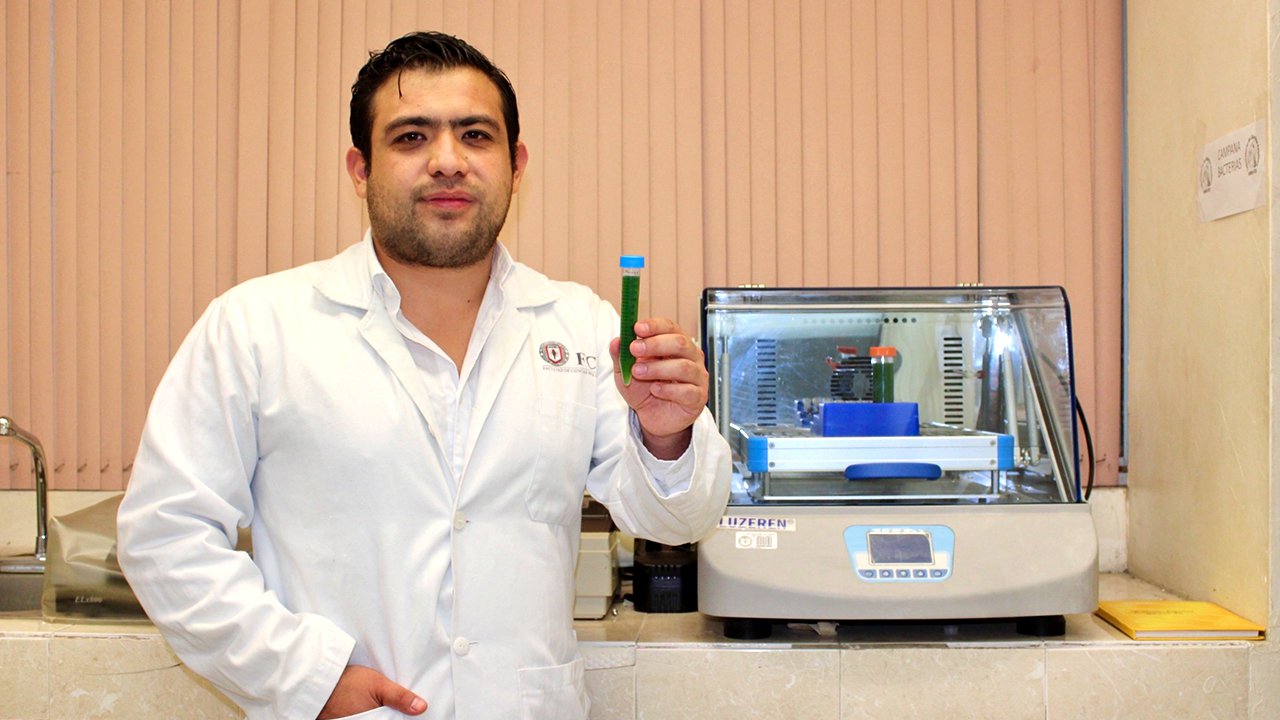Chemical
fertilizers have contributed to the expansion of agriculture worldwide for
decades. However, their nitrogen-based composition has harmful effects on the
planet and on both human and animal health, according to the United Nations
Environment Programme. An alternative exists: using plant growth enhancers
derived from natural elements that respect the soil and pose no health risks to
farmers.
Daniel
Garza (Mexico, 29 years old) is convinced that microbiology holds the key to
maintaining productivity in farmland previously treated with chemical
fertilizers. “Through
systems powered by sunlight and using CO₂ as a carbon source, we’ve succeeded
in making microalgae a valuable source of bioactive compounds. We use these to
develop biostimulants that sustainably boost crop growth and resilience,” he
explains.
His
company, Gexus, harnesses the unique properties of microalgae to enhance
metabolic efficiency and activate plants’ natural defenses, giving crops a
greater capacity to withstand drought, absorb nutrients more effectively, and
reduce damage from pests. The results speak for themselves:
“We’ve
achieved an average 25% increase in crop yield where our microalgae-based
biostimulants were applied.” This PhD
candidate in Microbiology emphasizes that the solution doesn’t just benefit
crops—it also leads to significant cost savings for farmers, as the use of
microalgae reduces the need for chemical pesticides and fertilizers. Gexus is
tackling three major challenges: the rising demand for food in Nuevo León,
Mexico, limited access to natural resources, and the urgent need to protect
ecosystems.
In addition
to focusing on sustainability, productivity, and profitability, Gexus also
educates farmers on clean technologies, promoting the adoption of sustainable
practices at scale and reinforcing environmental awareness and commitment to a
greener future.
“Microalgae
are the agents of change that will lead the next eco-revolution. These
microorganisms have survived and thrived on Earth for hundreds of millions of
years, and now it's their time to shine. We’re at a critical point: we have the
opportunity to redefine the agricultural model and address long-standing
challenges. The time to act is now,” says this Mexican innovator.
Garza
highlights the transformative power of microalgae, which have become his
driving force in research. “My
motivation is clear: to put science to work for the benefit of society, to
break down the barriers of traditional agriculture, and to face humanity’s
biggest challenges, like the future of food. There’s no time for inaction. We’re
here to transform, and microalgae are the tool that will allow us to do it.”
Convinced
that sustainable agriculture is no longer optional but an urgent necessity,
Gexus is preparing for international expansion. The company also plans to
explore other revolutionary applications of microalgae in agriculture. “We are
committed to educating and demonstrating, time and again, that our solution is
the path toward a stronger and more sustainable agricultural future,” he
affirms.
Garza’s
innovation in applying microalgae has earned him a spot among MIT Technology
Review in Spanish 35 Innovators Under 35. In 2021, he was also recognized by
Expansión magazine in the Most Innovative Mexicans category. He has received
multiple awards for his research work in Mexico, the United States, and
Indonesia.




